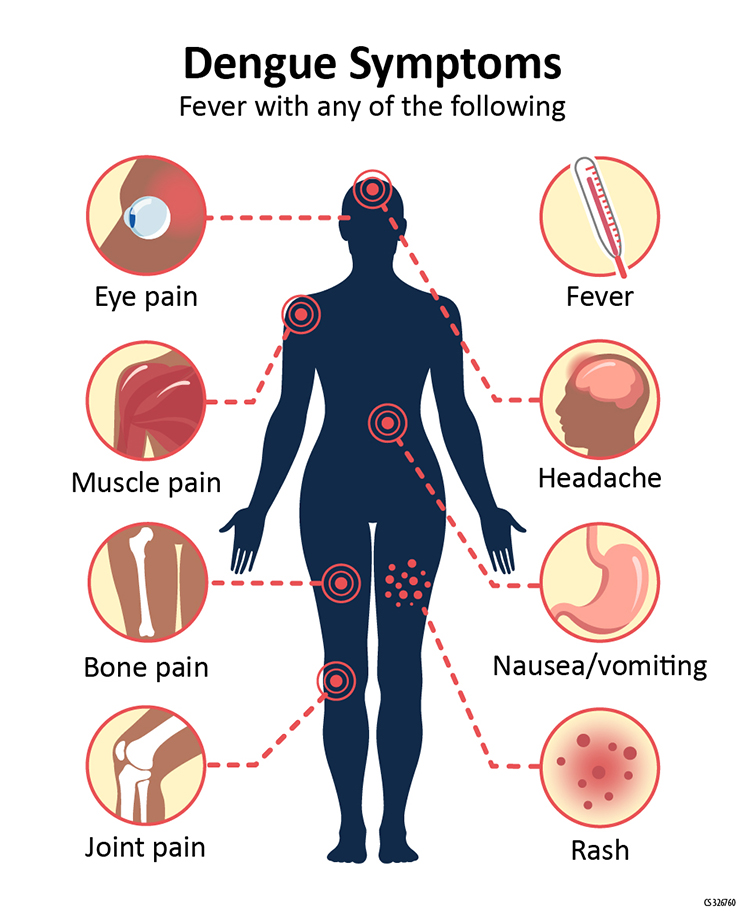
Dengue (DENG-gey) fever is a mosquito-borne disease that occurs in tropical and subtropical areas of the world.
SYMPTOMS :
Many people, especially children and teens, may experience no signs or symptoms during a mild case of dengue fever. When symptoms do occur, they usually begin four to seven days after you are bitten by an infected mosquito.
Dengue fever causes a high fever — 104 F degrees — and at least two of the following symptoms:
Headache
Muscle, bone and joint pain
Nausea
Vomiting
Pain behind the eyes
Swollen glands
Rash.
Signs and symptoms of dengue hemorrhagic fever or severe dengue — a life-threatening emergency — include:
Severe abdominal pain
Persistent vomiting
Bleeding from your gums or nose
Blood in your urine, stools or vomit
Bleeding under the skin, which might look like bruising
Difficult or rapid breathing
Cold or clammy skin (shock)
Fatigue
Irritability or restlessness.
CAUSES :
Dengue fever is caused by any one of four types of dengue viruses spread by mosquitoes that thrive in and near human lodgings. When a mosquito bites a person infected with a dengue virus, the virus enters the mosquito. When the infected mosquito then bites another person, the virus enters that person’s bloodstream.
After you’ve recovered from dengue fever, you have immunity to the type of virus that infected you — but not to the other three dengue fever virus types. The risk of developing severe dengue fever, also known as dengue hemorrhagic fever, actually increases if you’re infected a second, third or fourth time.
COMPLICATIONS :
If severe, dengue fever can damage the lungs, liver or heart. Blood pressure can drop to dangerous levels, causing shock and, in some cases, death.
Allopathic TREATMENT :
No specific treatment for dengue fever exists. Your doctor may recommend that you drink plenty of fluids to avoid dehydration from vomiting and a high fever
Acetaminophen (Tylenol, others) can alleviate pain and reduce fever. Avoid pain relievers that can increase bleeding complications — such as aspirin, ibuprofen (Advil, Motrin IB, others) and naproxen sodium (Aleve, others).
If you have severe dengue fever, you may need:
Supportive care in a hospital
Intravenous (IV) fluid and electrolyte replacement
Blood pressure monitoring
Transfusion to replace blood loss.
Homoeopathic medicine:
Homeopathy has been proven to be effective as prophylactic in large populations of endemic dengue areas.
Other remedies to consider are Lachesis, Hamamelis, Ipecac, Ferrum Metallicum, Crotalus Horridus, Ars alb and Secale when bleeding is present. Baptisia and China Officianalis may help when recovery is slow and accompanied by great weakness.
Sign up with your name and email to get updates fresh updates.